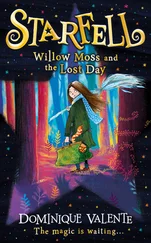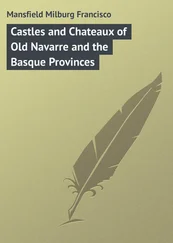Ursula Le Guin - Old Music and the Slave Women
Здесь есть возможность читать онлайн «Ursula Le Guin - Old Music and the Slave Women» весь текст электронной книги совершенно бесплатно (целиком полную версию без сокращений). В некоторых случаях можно слушать аудио, скачать через торрент в формате fb2 и присутствует краткое содержание. Жанр: Фантастика и фэнтези, на английском языке. Описание произведения, (предисловие) а так же отзывы посетителей доступны на портале библиотеки ЛибКат.
- Название:Old Music and the Slave Women
- Автор:
- Жанр:
- Год:неизвестен
- ISBN:нет данных
- Рейтинг книги:4 / 5. Голосов: 1
-
Избранное:Добавить в избранное
- Отзывы:
-
Ваша оценка:
- 80
- 1
- 2
- 3
- 4
- 5
Old Music and the Slave Women: краткое содержание, описание и аннотация
Предлагаем к чтению аннотацию, описание, краткое содержание или предисловие (зависит от того, что написал сам автор книги «Old Music and the Slave Women»). Если вы не нашли необходимую информацию о книге — напишите в комментариях, мы постараемся отыскать её.
and after that imported to fb2 by soshial (21.05.2008) http://torrents.ru/forum/viewtopic.php?t=463754
Old Music and the Slave Women — читать онлайн бесплатно полную книгу (весь текст) целиком
Ниже представлен текст книги, разбитый по страницам. Система сохранения места последней прочитанной страницы, позволяет с удобством читать онлайн бесплатно книгу «Old Music and the Slave Women», без необходимости каждый раз заново искать на чём Вы остановились. Поставьте закладку, и сможете в любой момент перейти на страницу, на которой закончили чтение.
Интервал:
Закладка:
The world of the cellar flashed into being around them, amazing in its intricate precision. They found nothing to use but the loose board shelves. They set down several of these, making a kind of platform, and crept onto it as Gana switched them back into formless simple night. They were all cold. They huddled up against one another, side to side, back to back.
After a long time, an hour or more, in which the utter silence of the cellar was unbroken by any noise, Gana said in an impatient whisper, "Everybody up there did die, I think."
"That would simplify things for us," Esdan murmured.
"But we are the buried ones," said Kamsa.
Their voices roused the baby and he whimpered, the first complaint Esdan had ever heard him make. It was a tiny, weary grizzling or fretting, not a cry. It roughened his breathing and he gasped between his frettings. "Oh, baby, baby, hush now, hush," the mother murmured, and Esdan felt her rocking her body, cradling the baby close to keep him warm. She sang almost inaudibly, "Suna meya, suna na... Sura rena, sura na..." Monotonous, rhythmic, buzzy, purring, the sound made warmth, made comfort.
He must have dozed. He was lying curled up on the planks. He had no idea how long they had been in the cellar.
I have lived here forty years desiring freedom, his mind said to him. That desire brought me here. It will bring me out of here. I will hold fast.
He asked the others if they had heard anything since the bombing raid. They all whispered no.
He rubbed his head. "What do you think, Gana?" he said.
"I think the cold air does harm that baby," she said in almost her normal voice, which was always low.
"You do talk? What do you say?" the old man shouted. Kamsa, next to him, patted him and quieted him.
"I'll go look," Gana said.
"I'll go."
"You got one foot on you," the old woman said in a disgusted tone. She grunted and leaned hard on Esdan's shoulder as she stood up. "Now be still." She did not turn on the light, but felt her way over to the ladder and climbed it, with a little whuff of breath at each step. She pushed, heaved at the trapdoor. An edge of light showed. They could dimly see the cellar and each other and the dark blob of Gana's head up in the light. She stood there a long time, then let the trap down. "Nobody," she whispered from the ladder. "No noise. Looks like first morning."
"Better wait," Esdan said.
She came back and lowered herself down among them again. After a time she said, "We go out, it's strangers in the house, some other army soldiers. Then where?"
"Can you get to the field compound?" Esdan suggested.
"It's a long road."
After a while he said, "Can't know what to do till we know who's up there. All right. But let me go out, Gana."
"For what?"
"Because I'll know who they are," he said, hoping he was right.
"And they, too," Kamsa said, with that strange little edge of laughter. "No mistaking you, I guess."
"Right," he said. He struggled to his feet, found his way to the ladder, and climbed it laboriously. I'm too old for this, he thought again. He pushed up the trap and looked out. He listened for a long time. At last he whispered to those below him in the dark, "I'll be back as soon as I can," and crawled out, scrambling awkwardly to his feet. He caught his breath: the air of the place was thick with burning. The light was strange, dim. He followed the wall till he could peer out of the storeroom doorway.
What had been left of the old house was down like the rest of it, blown open, smouldering and masked in stinking smoke. Black embers and broken glass covered the cobbled yard. Nothing moved except the smoke. Yellow smoke, grey smoke. Above it all was the even, clear blue of dawn.
He went round onto the terrace, limping and stumbling, for his foot shot blinding pains up his leg. Coming to the balustrade he saw the blackened wrecks of the two flyers. Half the upper terrace was a raw crater. Below it the gardens of Yaramera stretched beautiful and serene as ever, level below level, to the old tree and the river. A man lay across the steps that went down to the lower terrace; he lay easily, restfully, his arms outflung. Nothing moved but the creeping smoke and the white-flowered bushes nodding in a breath of wind.
The sense of being watched from behind, from the blank windows of the fragments of the house that still stood, was intolerable. "Is anybody here?" Esdan suddenly called out.
Silence.
He shouted again, louder.
There was an answer, a distant call, from around in front of the house. He limped his way down onto the path, out in the open, not seeking to conceal himself; what was the use? Men came around from the front of the house, three men, then a fourth—a woman. They were assets, roughly clothed, field hands they must be, come down from their compound. "I'm with some of the housepeople," he said, stopping when they stopped, ten meters apart. "We hid out in a cellar. Is anybody else around?"
"Who are you?" one of them said, coming closer, peering, seeing the wrong color skin, the wrong kind of eyes.
"I'll tell you who I am. But is it safe for us to come out? There's old people, a baby. Are the soldiers gone?"
"They are dead," the woman said, a tall, pale-skinned, bony-faced woman.
"One we found hurt," said one of the men. "All the housepeople dead. Who did throw those bombs? What army?"
"I don't know what army," Esdan said. "Please, go tell my people they can come up. Back there, in the stables. Call out to them. Tell them who you are. I can't walk." The wrappings on his foot had worked loose, and the fractures had moved; the pain began to take away his breath. He sat down on the path, gasping. His head swam. The gardens of Yaramera grew very bright and very small and drew away and away from him, farther away than home.
He did not quite lose consciousness, but things were confused in his mind for a good while. There were a lot of people around, and they were outdoors, and everything stank of burnt meat, a smell that clung in the back of his mouth and made him retch. There was Kamsa, the tiny bluish shadowy sleeping face of the baby on her shoulder. There was Gana, saying to other people, "He did befriend us." A young man with big hands talked to him and did something to his foot, bound it up again, tighter, causing terrible pain and then the beginning of relief.
He was lying down on his back on grass. Beside him a man was lying down on his back on grass. It was Metoy, the eunuch. Metoy's scalp was bloody, the black hair burned short and brown. The dust-colored skin of his face was pale, bluish, like the baby's. He lay quietly, blinking sometimes.
The sun shone down. People were talking, a lot of people, somewhere nearby, but he and Metoy were lying on the grass, and nobody bothered them.
"Were the flyers from Bellen, Metoy?" Esdan said.
"Came from the east." Metoy's harsh voice was weak and hoarse. "I guess they were." After a while he said, "They want to cross the river."
Esdan thought about this for a while. His mind still did not work well at all. "Who does?" he said finally.
"These people. The field hands. The assets of Yaramera. They want to go meet the Army."
"The invasion?"
"The liberation."
Esdan propped himself up on his elbows. Raising his head seemed to clear it, and he sat up. He looked over at Metoy. "Will they find them?" he asked.
"If the Lord so wills," said the eunuch.
Presently Metoy tried to prop himself up like Esdan, but failed. "I got blown up," he said, short of breath. "Something hit my head. I see two for one."
"Probably a concussion. Lie still. Stay awake. Were you with Banarkamye, or observing?"
"I'm in your line of work."
Esdan nodded, the backward nod.
"Factions will be the death of us," Metoy said faintly.
Читать дальшеИнтервал:
Закладка:
Похожие книги на «Old Music and the Slave Women»
Представляем Вашему вниманию похожие книги на «Old Music and the Slave Women» списком для выбора. Мы отобрали схожую по названию и смыслу литературу в надежде предоставить читателям больше вариантов отыскать новые, интересные, ещё непрочитанные произведения.
Обсуждение, отзывы о книге «Old Music and the Slave Women» и просто собственные мнения читателей. Оставьте ваши комментарии, напишите, что Вы думаете о произведении, его смысле или главных героях. Укажите что конкретно понравилось, а что нет, и почему Вы так считаете.












